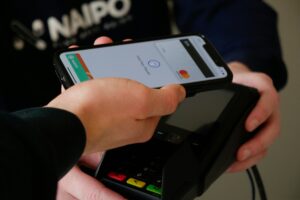For In recent years, and especially since the COVID-19 pandemic, the leisure and tourism sectors have been experiencing a significant shortage of manpower. In 2022, the number of vacancies in this sector has doubled compared to previous years.
The recruitment of seasonal employees, already a sensitive issue due to its precariousness, also experienced major disruption.
So how do you recruit seasonal employees without breaking the bank? We've put together a few tips, and our customer Pierre Duz, manager of the Accroche Aventure park since 2015, shares his experience with us.
Where to start?
To recruit seasonal workers effectively, you need to start by identifying existing channels and choosing those that are relevant to your organization.
- Web. Apart from well-known websites such as Pôle Emploi and Indeed, you can turn to more specialized solutions for your sector. For example, the "Emplois" section of the magazine Espaces Tourisme et Loisirs is well known to job seekers in the tourism industry.
"We fill certain positions thanks to ads posted via the Active Leisure Union."
- Pierre Duz (Accroche Aventure)
- Trade shows. There are also events where you can meet your potential candidates. The Salon Oxygène in the Occitanie region, the Saisons de l'emploi in the Gulf of Saint-Tropez and many others throughout France set up job-datings, where interested parties can send you their CVs and even take the first step in recruitment.
- Universities and schools. A large proportion of seasonal jobs are filled by students. Distributing your job offers to universities and schools can be a good solution. For example, the Institut Supérieur du Tourisme de l'Hôtellerie et de l'Alimentation in Toulouse has its own web platform for students and alumni, where employers can post job and internship offers.
However, don't deprive yourself of candidates who are studying in other fields. Future sociologists or doctors are also looking for summer jobs and may be attracted by your offer.
"A large proportion of our seasonal employees are medical students, future physiotherapists and veterinary surgeons. We often manage to keep them on throughout their studies".
- Pierre Duz
- Word of mouth. This is the least energy-consuming route for you as an employer, because you don't have to take any steps. Your reputation works for you: current and former employees tell their friends and family about you, and recommend you as a good place to apply. This can be very effective if you have a strong employer brand.
"We manage to recruit the majority of our seasonal workers thanks to our employees. They tell their friends and schoolmates about us, or tell us directly about interesting applications."
- Pierre Duz

But what is a strong employer brand?
Your employer brand is strong when employees and candidates feel they can trust you, and that your offer is attractive enough to attract and retain the best among them.
Why strengthen your employer brand?
Firstly, it reduces your recruitment costs. If you have a strong employer brand, you'll spend much less time looking for employees - they'll come to you on their own. You also reduce turnover by building loyalty, so you spend even less time recruiting. What's more, as mentioned earlier, your employees start to help you recruit, by telling their friends and family about you. The customer experience benefits too. Finally, it allows you to preserve skills: if you manage to retain your employees, they come back to you already trained and can help you train newcomers. After all, it's easier to start the season with a team that knows Guidap inside out!
How can you strengthen your employer brand?
Employer branding can be built and strengthened through a number of levers:
- Salary. The most obvious thing is to offer a competitive salary. Of course, we'd like employees to be motivated above all by the job and the assignments, but we mustn't forget that employees attach great importance to the financial factor: they also have bills to pay.
- Accommodation. For seasonal employees, accommodation can be a real constraint. You have several options: as is the case at Accroche Aventure, give priority to recruiting from the local population, which also helps to strengthen the region's economic ecosystem; offer accommodation (gîtes, mobile homes) on the site or nearby - a substantial investment, but one that helps to build team spirit and loyalty, and also anticipate the issue of transport and possible delays; set up partnerships with campsites or university residences if there are any in the nearest towns, so as to be able to offer solutions at lower cost.
- Training and integration. One of the most important aspects in making your seasonal employee's experience a pleasant one is to give them all the keys to success. If you give them responsibilities without explaining how to carry them out, failure is almost inevitable. The best solution is to form pairs with more experienced employees and let them guide the new recruits. This approach also facilitates integration into the team and creates cohesion for the whole season.
"We invite our candidates to come to the site for 1-2 days, so they can get to grips with the job and understand if they like it. It also allows us to see how the person interacts and find the best application for them. Someone is more at ease at the reception desk, someone else is more efficient on the route. What's more, it allows us to quickly integrate the new person and see if he or she will be at ease with the team.
We also hold regular parties after the park closes. For example, we might go to a restaurant where we invite the whole team, so we can contribute to the local economy.What's more, it allows us to identify people who feel excluded from the team: if someone never comes, that's when we say we've got to catch up and help the employee integrate further."
- Pierre Duz
- Meaning. New generations are increasingly looking for jobs and companies that, in their eyes, have meaning and impact, whether on society or the environment. Working on your company's impact and moving towards sustainable development can enhance your attractiveness as an employer. There are a large number of measures and actions a leisure facility can take to embrace sustainability, such as adapting its snacking/catering offer. Find out more in our article "Practical tips for opening or developing a sustainable snack bar for your leisure facility".
- The future. Naturally, people seek security for their future. Living from one season to the next without knowing where you'll end up in a few months or a year can be very frustrating. On the other hand, employers can use this factor as an advantage, by offering their seasonal employees a promise of employment for the next season. Alternatively, you can go a step further and offer off-season positions, or even a permanent contract, to build up a good team and prepare your structure for year after year.
- Wellness. This category is quite broad and can be interpreted in many different ways. We suggest that you start with the simplest formulation: try to create the best conditions for your employees to be efficient and fulfilled! Flexible working hours, access to showers, a rest area, automation of recurring tasks such as confirming bookings, or a facility for employees to submit suggestions for improvements on the site - these are just some of the ways in which you can make your team's day-to-day life more serene and enjoyable.
- Communication. This is another element in building employee loyalty without requiring exorbitant investment. Regular, transparent communication is essential. It's also important to keep an eye on developments within the team, and to praise initiative and performance. It's essential to know how to defuse conflict situations, before they become crisis situations. Communication and a healthy atmosphere can be reinforced by teambuilding activities and meetings outside the professional context.
"Communication with employees is very important, and that's the job we have to do every day. We always try to focus on the positive. We can't have perfect people, but if there's 1 flaw against 80 qualities, it's not the negative that needs to be taken into account. And you have to congratulate success. We organize seminars or parties to celebrate our shared success.
If there are difficulties in the company, you have to make them known too. Besides, we're all human, and it happens that we have points of friction. The important thing is not to let things fester; you have to 'lance the abscess' as they say. In general, things go well."
- Pierre Duz
What next?
Despite what you might think, the departure of your seasonal employees is just as important as their arrival. It's a good time to take stock during a one-to-one interview, to discuss the employee's feelings and performance, but also to forge a bond for the future. This will give you a better chance of seeing the employee again next year, or else of gaining a true ambassador who will strengthen your network and, consequently, your employer brand. If, on top of this, you help your departing employee find a position for the off-season, you're ensuring a relationship of trust and mutual support.
"We have a ¾ of our former employees who stay in touch with us, who drop in regularly, who come for a drink at closing time. It's something that means a lot to us."
- Pierre Duz





